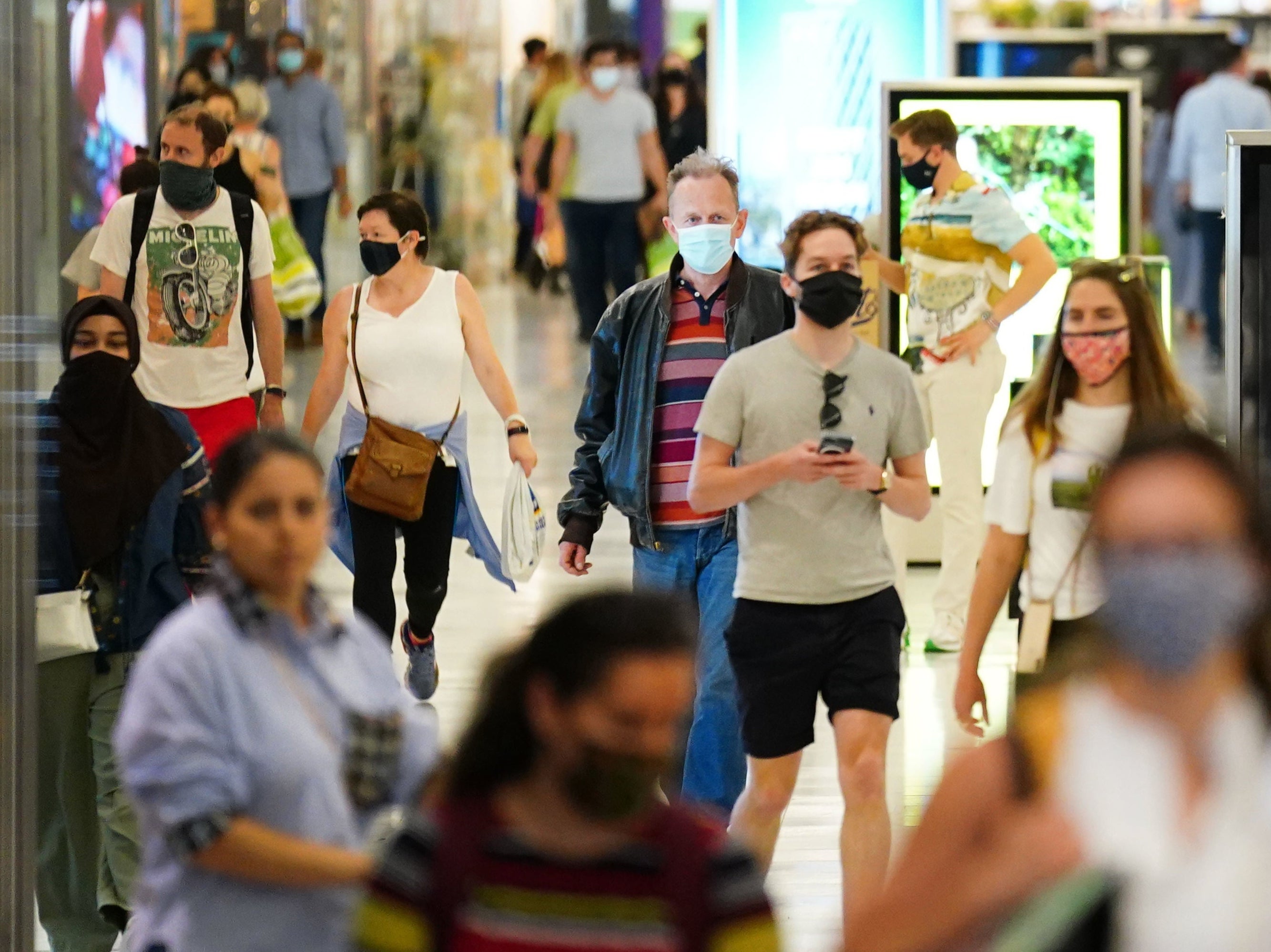Let us hope support for permanent Covid-19 restrictions is just a phase
As many of the British public support as oppose a permanent requirement to wear masks in shops and on public transport, John Rentoul writes


Throughout the Covid-19 pandemic, public opinion has tended to be authoritarian. At each stage, most British people have supported every restriction that has been imposed, with more people wanting stricter and compulsory rules rather than laxer and voluntary ones. Attitudes to borders have been particularly striking, with most people, for most of the period, wanting international travel banned altogether.
This has applied at all levels: until recently, most people in English holiday areas have wanted incomers to stay away. My cod psychology theory is that last year’s rise in support for Scottish independence – now abating – was partly caused by this instinct to shut down and shut ourselves away.
The current tension between government policy and public opinion is over whether face coverings should be compulsory or voluntary on public transport and in shops after next week. Boris Johnson wants to leave it to “common sense”; the British public overwhelmingly wants to be compelled.
This is a soft form of authoritarianism. Infectious diseases have always been an exception to liberalism on John Stuart Mill’s principle – that freedom is good up to the point where it harms others. Indeed, it is in our selfish interest to control diseases, and if compulsion achieves higher compliance with effective measures than a voluntary approach, there is a pragmatic argument for legislation. Plus, we are British, and so feel more comfortable knowing what is expected of us rather than having to decide for ourselves.
It is obvious from the Ipsos MORI poll carried out this month that Keir Starmer, the Labour leader, is on the side of public opinion in wanting compulsory mask-wearing to continue for at least a month longer – which was supported by 70 per cent and opposed by 16 per cent.
What I found surprising, however, was that the poll found that large minorities wanted some restrictions to continue “permanently”. It found that 40 per cent wanted compulsory masks in shops and on public transport for ever; 36 per cent wanted a permanent requirement to check into pubs and restaurants with an NHS contact tracing app; 35 per cent wanted compulsory 10-day quarantine for all arrivals from abroad indefinitely; and 34 per cent want to keep social distancing in theatres, pubs and sports grounds until the end of time.
Once you exclude the don’t knows (2 per cent) and the “neither support nor oppose” (17 per cent), support for and opposition to “having to wear masks” permanently are almost equal: 41 to 40 per cent.
These findings seem extraordinary to me, as the question explicitly asks whether the restrictions should be in place “permanently, regardless of the risk from Covid‐19”. Did respondents simply fail to read to the end of the question in the online survey? Or did they interpret it to mean “for a long, precautionary period”?
This set of questions came after a series which asked whether rules should stay, first, for a month after 19 July (70 per cent support), and second, “until Covid-19 is under control worldwide” (64 per cent support), so I suppose some people might interpret “permanently” as meaning “for even longer than that”. And it is possible that some people read “having to wear masks” as meaning “being expected to” rather than a legal requirement. But perhaps large numbers of my fellow citizens genuinely believe it is necessary to maintain these restrictions permanently to guard against the next pandemic.
Even so, the illiberalism on display is alarming. As we work down Ipsos MORI’s list of measures, we still find 26 per cent – a quarter of the population – who want all nightclubs and casinos closed permanently. The spirit of Oliver Cromwell, possibly, combining with an ultra-defensive approach to public health. And even 19 per cent – one-fifth of the population – who support a permanent “curfew against leaving home after 10pm without a good reason”. A permanent curfew. At least a majority of the British public can muster the minimal understanding of freedom necessary to oppose both of those (52 per cent and 65 per cent respectively).
We can only hope that this is a temporary shock induced by the fear of the pandemic, and that attitudes will return to normal as human activity does. By definition, insignificant numbers of people held these views before coronavirus. I know one person who used to wear a mask on the London Underground before the pandemic, and that was because of the air quality.
No doubt some people will continue to think that temporary curtailments of freedom should be made permanent. But I hope that the overwhelming majority will realise that such an authoritarian response to what is now a limited threat to public health is out of all proportion.



Join our commenting forum
Join thought-provoking conversations, follow other Independent readers and see their replies
Comments